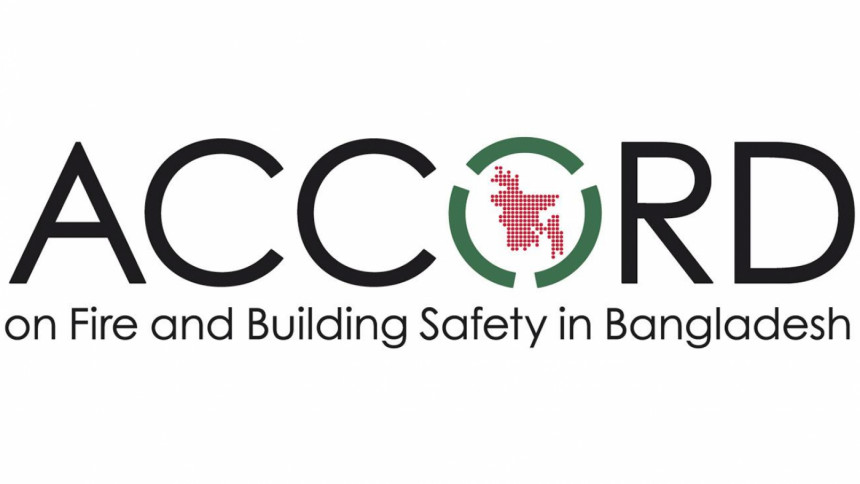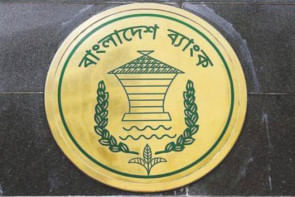Knot so true

It was 2013 that brought about a massive change in the local garment industry. Rana Plaza had collapsed and with around 1,132 lives lost in the incident, the entire nation suffered a sense of collective grief.
As such, garment manufacturers began to readdress their business strategies with an increased focus on compliance.
It was then in the summer of 2013 that the Accord Foundation was born in Amsterdam, based on a bilateral understanding between brands and unions.
This agreement lasted for eight long years and during this period, the Accord gave factories strict requirements to comply with in areas of structural, electrical and fire safety.
In about seven years, less than 350 factories received 100 per cent completion certificates, more than 300 others are ready to be inspected, and another 800 have achieved 90 per cent of the completion rate.
In the meantime, the brands and unions had signed the Accord version-2 which remains, till date, unacceptable by the industry in Bangladesh. It was at that point that Bangladesh had come up with a strict ruling against the Stichting Bangladesh Accord Foundation operating in the country.
Before the ruling, the idea was to gradually transfer compliant factories to the Remediation Coordination Council, under the Department of Inspection for Factories and Establishments (DIFE).
After transferring some 100 factories to DIFE, the Accord felt that there were lackings in monitoring and that the pace of remediation had become slow.
But with Accord not being able to operate in Bangladesh, things became difficult for all.
Therefore, a transition agreement was reached between the Accord and the local industry in 2019, based on which the latter became a part of the remediation process and at the same time, a critical stakeholder.
Instead of just two parties, the industry assumed a position in the discourse of remediation and a tripartite initiative was formed, which was called the RMG Sustainability Council (RSC) in September 2019. RSC, a company, falls under a non-profit category. It is also licensed to operate in Bangladesh by the commerce ministry. So, in late 2019, RSC started its operation with all the sides: brands, unions and industry.
A new managing director, who was a British-Bangladeshi engineer, was also hired.
For those who were on the RSC board, things were challenging as not only would the RSC have to prove its independence and objectivity, but would also ensure a faster and more efficient performance with the same set of engineers that the Accord had handed over to it.
At the same time, the board members from the industry side also had to be accountable to manufacturers who had been waiting for the longest time for pending assessments and had to also go through multiple audits with newer observations that were not part of the initial assessment. Disappointment from the industry was also a big challenge.
As for the unions, the local garment industry would also have to prove to them that industry meant business and being engaged in RSC would mean rising above self interest and focusing on the greater good for all.
At such a point, on May 31, 2021, the agreement between the brand and the unions ended, prompting widespread bad press about unions not supporting RSC anymore. This meant that the formal engagement between the brands and the unions had finally ended.
Thanks to the mediation of supporters from home and abroad, the brands and unions finally agreed to enter a transition of three months, which was scheduled to end on Aug 31. That would mean from Sep 1, 2021, there would be no formal participation of the unions in RSC as well.
This was risky and it meant that RSC would dip in the credibility ranking.
Although this part of external gatekeeping was difficult for the industry to accept and reconcile with, the industry just stayed quiet and hoped for a more amicable outcome.
On August 25, 2021, the brands and unions reached a legally binding agreement, which states that RSC would be an independent entity and that through this agreement, brands would remain committed to support RSC and through this instrument, the Accord could go global.
Quite rightfully, many concerns were raised right after that. Why would the press release from Accord Foundation still have the old name: Stichting Bangladesh Accord Foundation, and why would it continue to directly or indirectly interfere or monitor RSC?
Although the word 'monitoring' does not really feature in the document, stresses on many articles and protocols stipulated in that document, which are also in RSC and are going through extensive scrutiny, continue to raise eyebrows.
So, the industry has a right to ask why would not the Foundation talk about a better price when a 2.35 per cent price decline is plaguing the sector?
Why, during an unrest, is there no solid dispute resolution mechanism in place where unions play an effective part? Most importantly, why would all fingers always point to industry?
The RSC is funded by brands, but from this year, one-fifth of the costs will also be borne by the industry. This participation will increase with time. With an organisation that has inherited all the human resources of the Accord and with nearly nothing changing, why would there be still talk about monitoring RSC, especially when all three stakeholders: brands, unions and industry, are all there in equal capacity, mandated to reach all decisions by consensus.
The concept of gatekeeping must change. No party can ever be bound by agreements or threats.
Brands will place business in good faith; manufacturers will comply with the terms of contract and deliver the goods seamlessly against a reasonable price and workers rights will be upheld. The concept of common good is clear.
Today, when remediation in Bangladesh garment factories stands at over 90 per cent with the industry having spent more than $1.5 billion to import fire equipment, why would the motive of the industry be perennially questioned? Is it not remediation for our own benefit? Is it not true that without compliance, most factories would be out of business?
Let this be clear: it is for the industry's own advantage that the industry itself will be cooperating with RSC.
Brands will also choose the compliant factories for their own reputational risk. It is also for the unions to protect the rights of workers without the confrontational angle.
Brands must commit to better sourcing practices, unions must also commit to transparency in dispute resolution, and factories must commit to upholding the highest level of safety and security for their workers.
The responsibilities of every constituency are clear today.
Blame is now a dead game. All must comply and gatekeeping must not be the burden of only one single constituency.
This is for the first time in history that unions, brands and industry have come together.
Therefore, bilateral agreements between the brands and unions must not mar the pace, break the trust or jeopardise the entire concept of mutual respect, understanding and independence, upon which the foundation of RSC lies.
The author is a former president of the Bangladesh Garment Manufacturers and Exporters Association.


 For all latest news, follow The Daily Star's Google News channel.
For all latest news, follow The Daily Star's Google News channel. 



Comments